Diet For Lutino Cockatiel: What You Need to Know About It!
Learn the essentials of a Lutino Cockatiel's diet, ensuring your pet's health and longevity with the right nutrition choices. Enjoy reading!
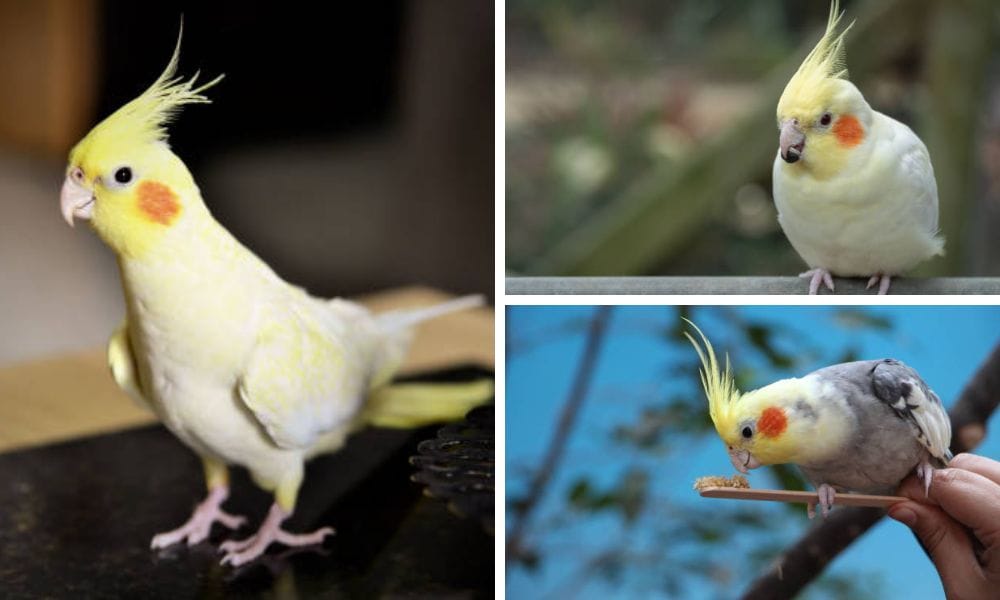
Cockatiels are among the most cherished pet birds in the world, and the lutino cockatiel, with its striking white plumage and red eyes, is a particularly captivating variety. If you're a first-time bird owner or an avian enthusiast considering adding a lutino cockatiel to your family, understanding their dietary needs is crucial for maintaining their health and happiness. This article will delve into the essentials of a lutino cockatiel's diet, providing you with the knowledge to care for your feathered friend properly.
Key Takeaways:
- Lutino cockatiels require a balanced diet consisting of seeds, pellets, fruits, and vegetables to maintain their health.
- Understanding the specific dietary needs and potential health issues of lutino cockatiels can help prevent nutritional deficiencies.
- Regularly introducing variety and monitoring food intake are key to ensuring your lutino cockatiel thrives.
Understanding the Lutino Mutation
The lutino cockatiel is the second cockatiel mutation to be discovered, characterized by a lack of grey color in their feathers, which is replaced by a beautiful yellow or white. This mutation, known as the lutino gene, is a result of a genetic variation that affects the pigmentation of the feathers. While their appearance is different, lutino cockatiels share the same dietary requirements as other cockatiel color mutations.
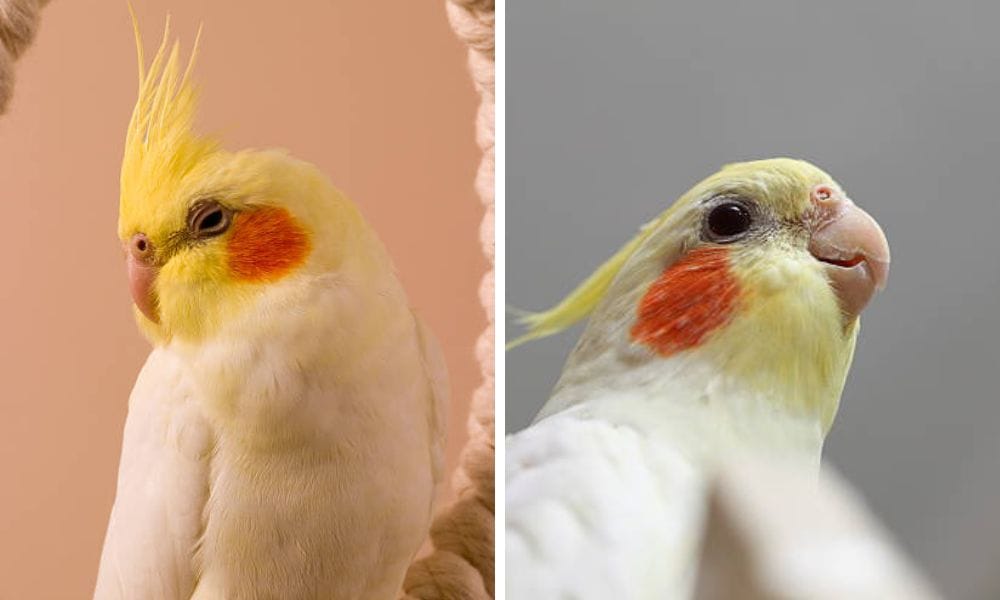
Balanced Diet for Lutino Cockatiels
A balanced diet is essential for maintaining the health of lutino cockatiels. Seeds should not be the sole component of their diet, as they can lead to obesity and other health issues. Instead, a mix of seeds, cockatiel pellets, fresh fruits, and vegetables should be provided. Pellets are especially important as they are formulated to provide a complete range of nutrients required by these birds.
The Role of Seeds and Pellets
Seeds are a natural part of the cockatiel diet in the wild, but they should be given in moderation to pet lutino cockatiels. A variety of seeds, such as millet, sunflower, and canary seeds, can be offered, but they should be balanced with high-quality pellets that cater to the nutritional needs of lutino cockatiels. Pellets are designed to be a complete food source and can help prevent selective eating habits.
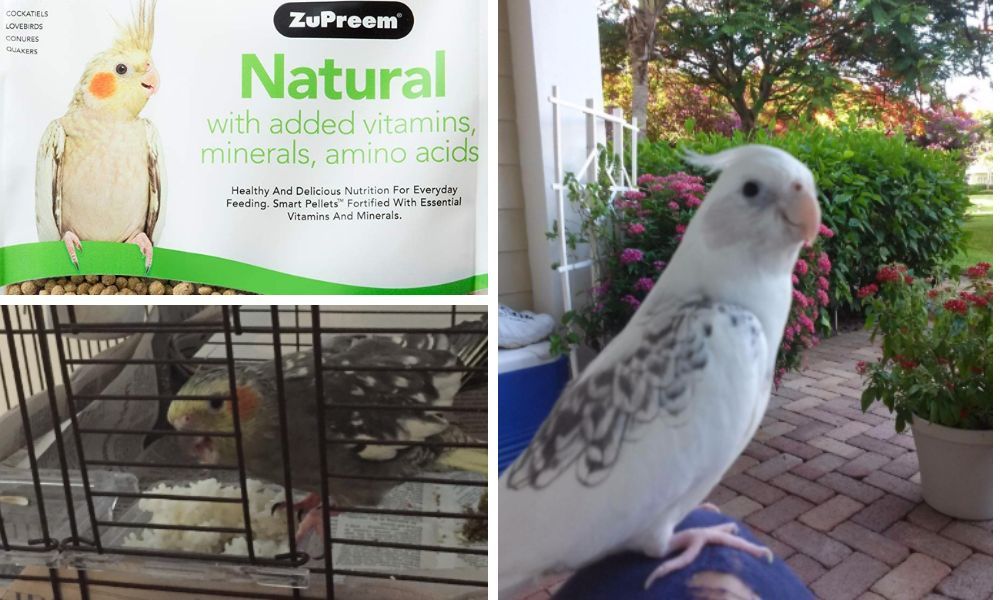
Fresh Fruits and Vegetables
In addition to seeds and pellets, fresh fruits and vegetables are vital for a lutino cockatiel's diet. They provide essential vitamins, minerals, and hydration. Safe options include leafy greens, carrots, apples, and berries. It's important to wash all fruits and vegetables thoroughly to remove any pesticides or chemicals.
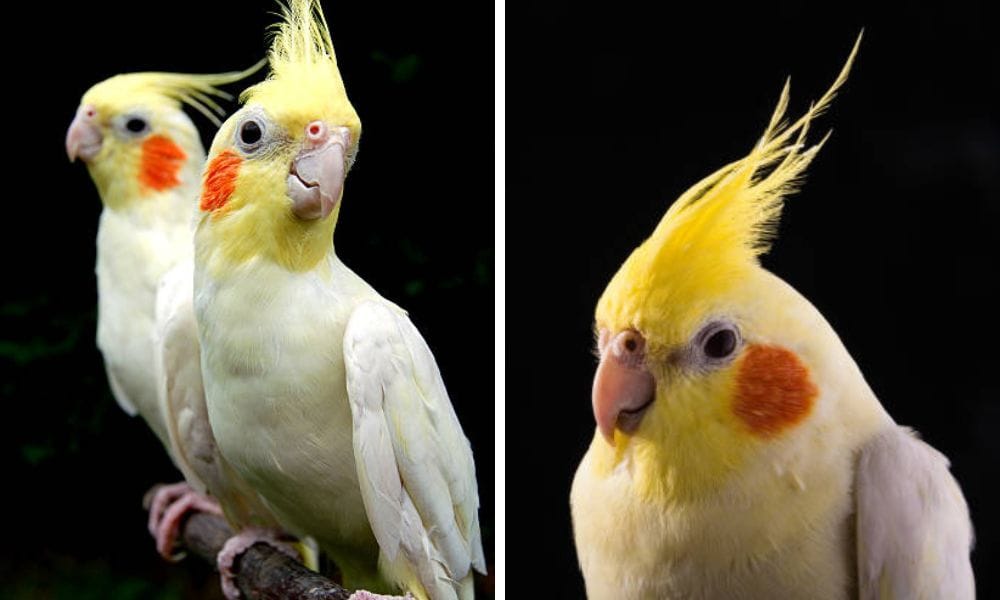
Foods to Avoid
Certain foods can be harmful to lutino cockatiels and should be avoided. These include avocado, chocolate, caffeine, and foods high in fat, salt, or sugar. Always research or consult with a vet before introducing new foods to your cockatiel's diet.
Importance of Water
Fresh, clean water must be available at all times for your lutino cockatiel. Water not only keeps them hydrated but also aids in digestion. Water containers should be cleaned and refilled daily to prevent the growth of bacteria.
The Intricacies of Lutino Cockatiel Genetics
Understanding the genetics behind the lutino cockatiel can be quite fascinating, especially for first-time bird owners who are eager to learn about their pets. The lutino mutation is a result of a lack of melanin, which gives these birds their distinctive yellow and white coloring. This mutation can occur in both males and females, but it is often more obvious in males due to their brighter cheek patches. The lutino gene is recessive, meaning that a cockatiel needs to inherit the gene from both parents to express this coloration.
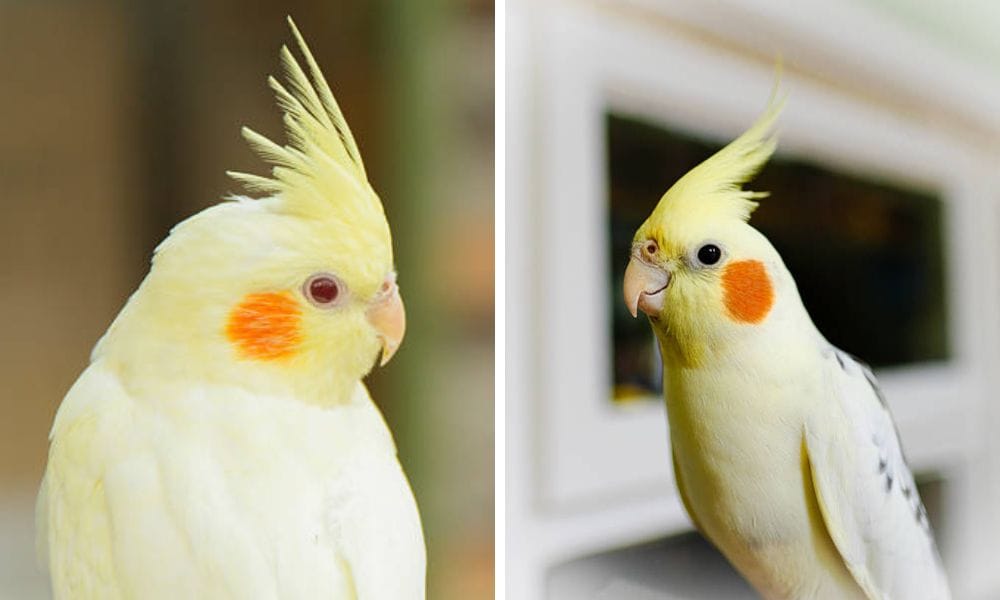
In aviculture, breeding lutino cockatiels with other mutations, such as pied, pearl, or cinnamon, can result in a variety of stunning variations. For instance, breeding a lutino with a whiteface cockatiel can produce an albino cockatiel, which is a rare and sought-after variation. These breeding practices have led to a diverse range of colors and patterns within the species, making the lutino cockatiel a popular choice for those interested in the genetic aspect of bird breeding.
Enriching Your Lutino Cockatiel's Environment
To keep your lutino cockatiel happy and healthy, it's essential to provide an environment that caters to their inquisitive and intelligent nature. Toys play a crucial role in their mental stimulation. Items such as bells, ropes, and ladders can keep these smaller birds engaged and entertained. It's important to rotate toys regularly to prevent boredom and encourage new forms of play. Additionally, incorporating a nest box in their cage can provide a sense of security and a place for them to retreat when they need some quiet time.
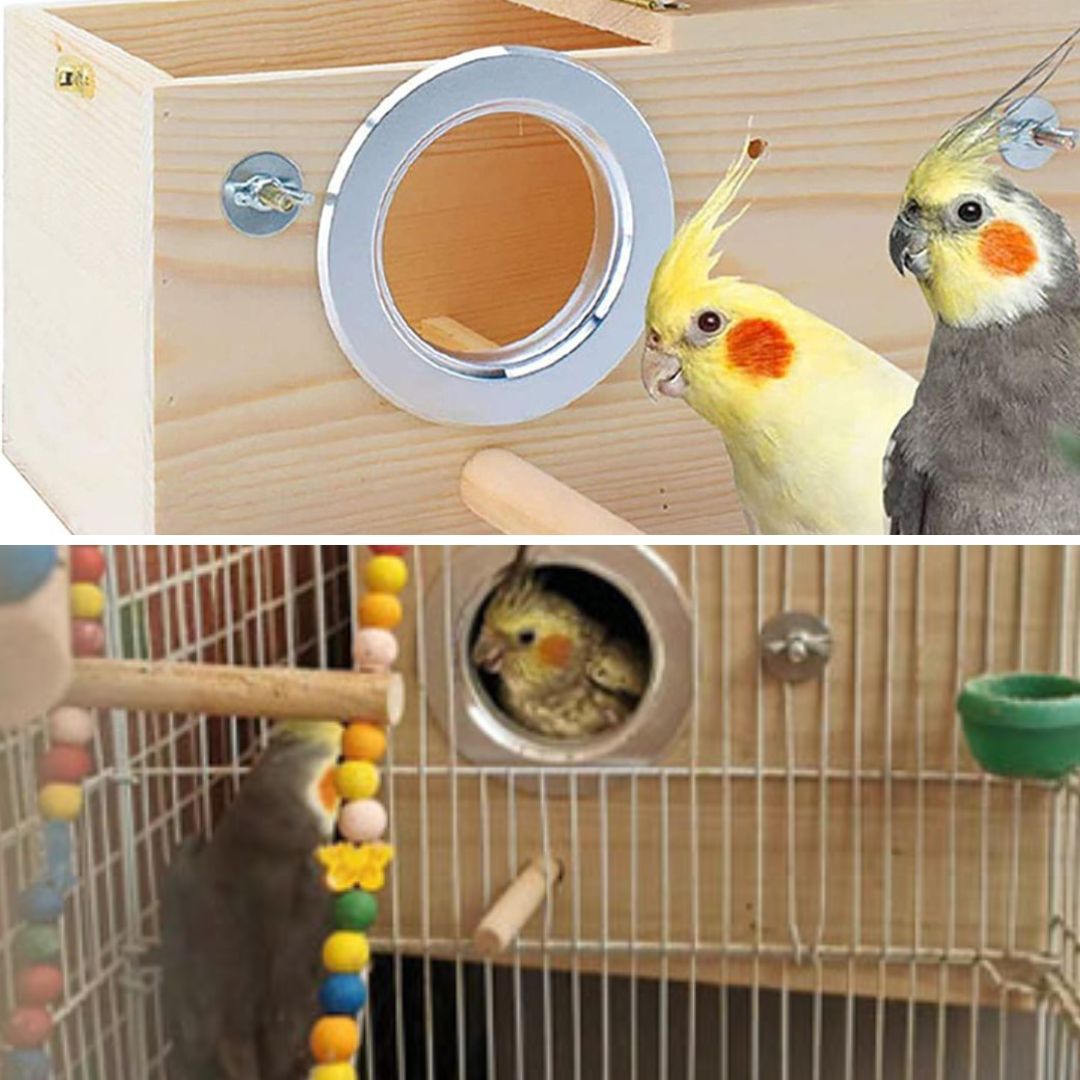
Interaction with their human companions is also vital for lutino cockatiels. They tend to be very social and enjoy activities that involve mimicking sounds, such as chirping, whistling, or even trying to talk. Training sessions are not only a great way to bond with your bird but also an opportunity to challenge their bright minds. With patience and consistency, you can train your lutino cockatiel to perform tricks or even to fly to you on command. Remember, the key is to watch for their reactions and adapt your approach to suit their individual personality.
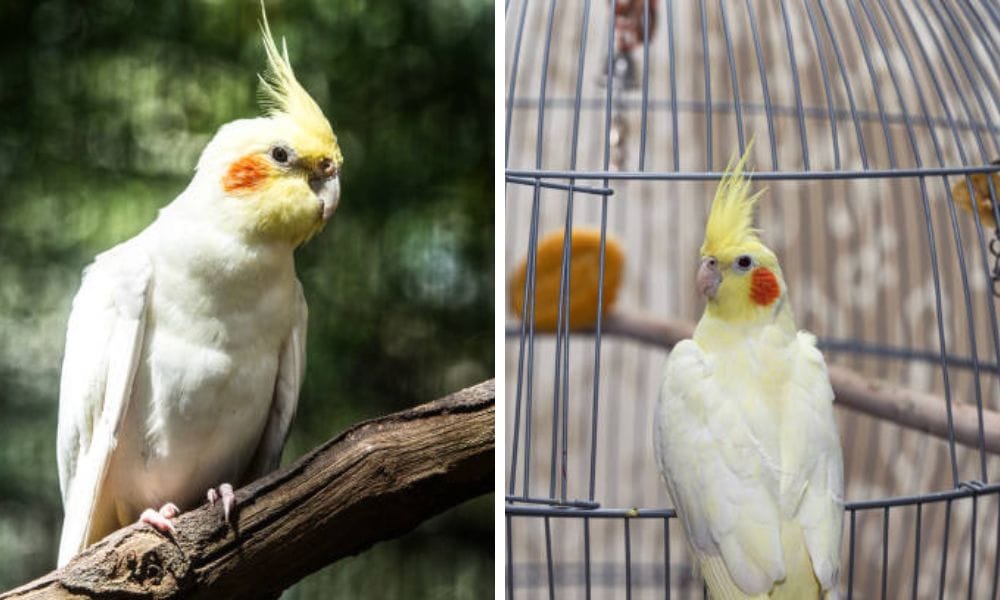
Monitoring Food Intake
Observing your lutino cockatiel's food intake is crucial. A sudden change in eating habits can be a sign of illness. Lutino cockatiels, like other parrots, are adept at hiding their illnesses, so vigilant monitoring is necessary.
Dietary Supplements
While a well-rounded diet typically provides all the necessary nutrients, some lutino cockatiels may require additional supplements, especially if they are breeding or have specific health concerns. Consult with an avian veterinarian before adding any supplements to your bird's diet.
Treats and Training
Treats can be an effective tool for training and bonding with your lutino cockatiel. Healthy treats like small pieces of fruit or special bird treats can be used sparingly to reinforce positive behavior.
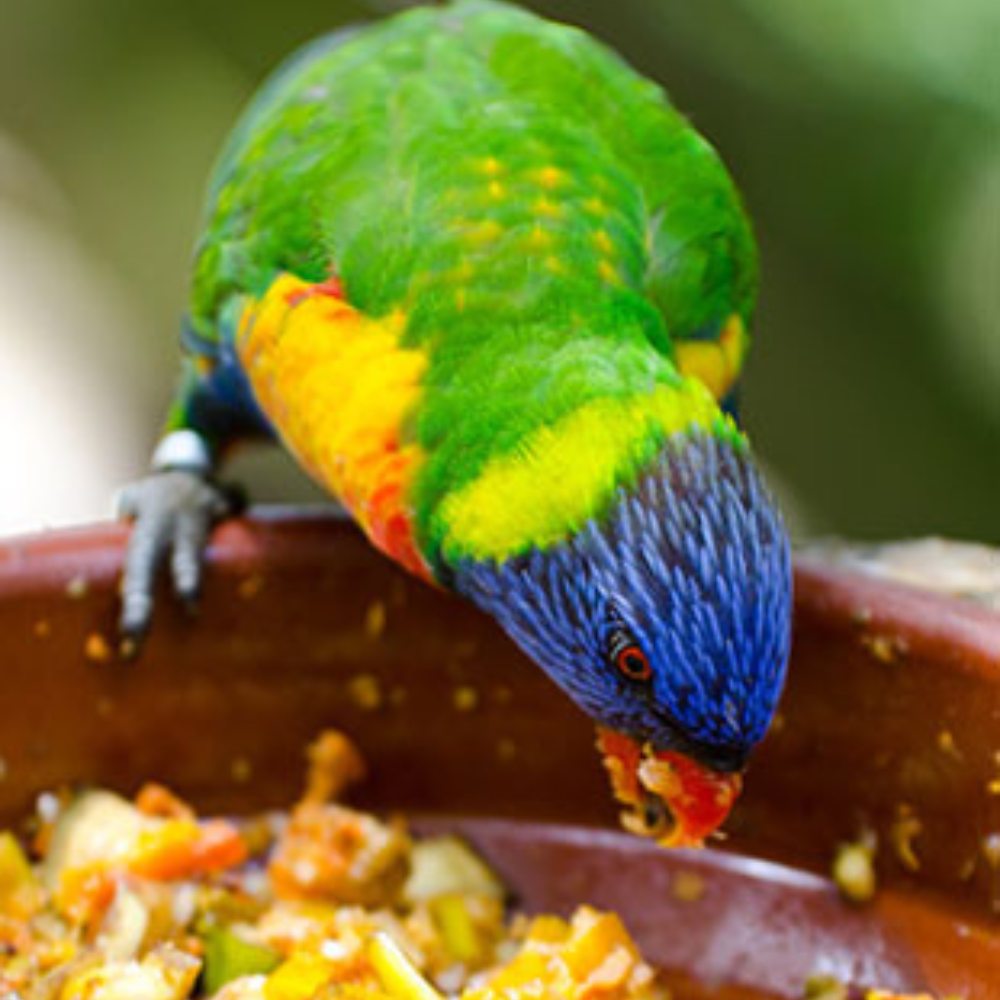
The Danger of Overfeeding
Overfeeding can lead to obesity and health problems in lutino cockatiels. It's important to provide appropriate portion sizes and to avoid leaving food in the cage all day. Instead, establish a feeding schedule that mimics natural feeding patterns.
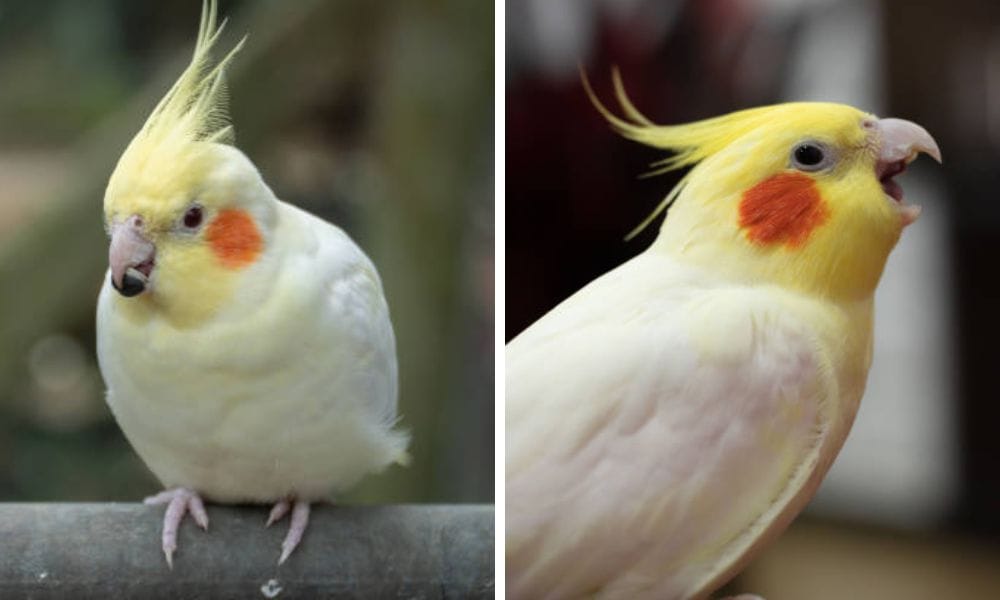
Understanding Your Bird's Eating Habits
Each lutino cockatiel is unique, and their eating habits can vary. Some may prefer certain foods over others, and it's important to recognize these preferences while ensuring they receive a balanced diet.
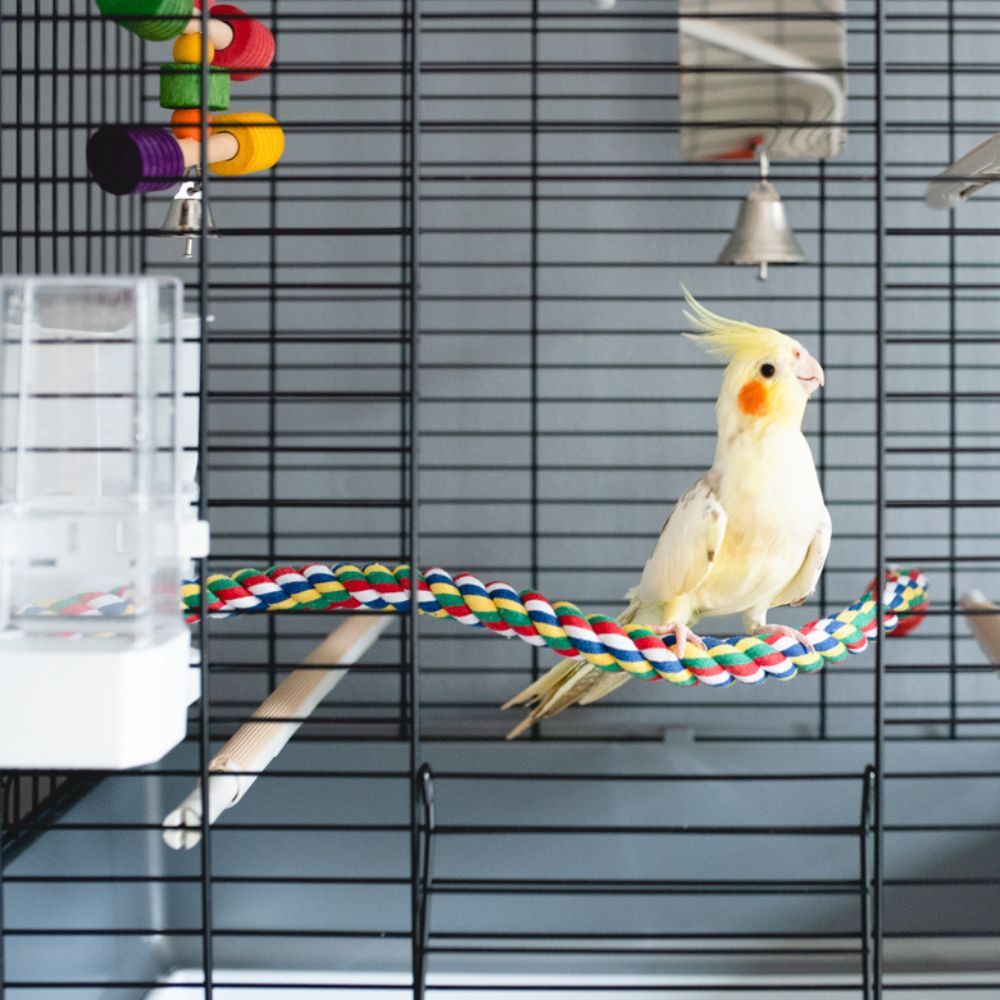
The Social Aspect of Feeding
Cockatiels are social eaters and may enjoy eating in the company of their owners or other birds. This can be an excellent opportunity to strengthen your bond with your lutino cockatiel.
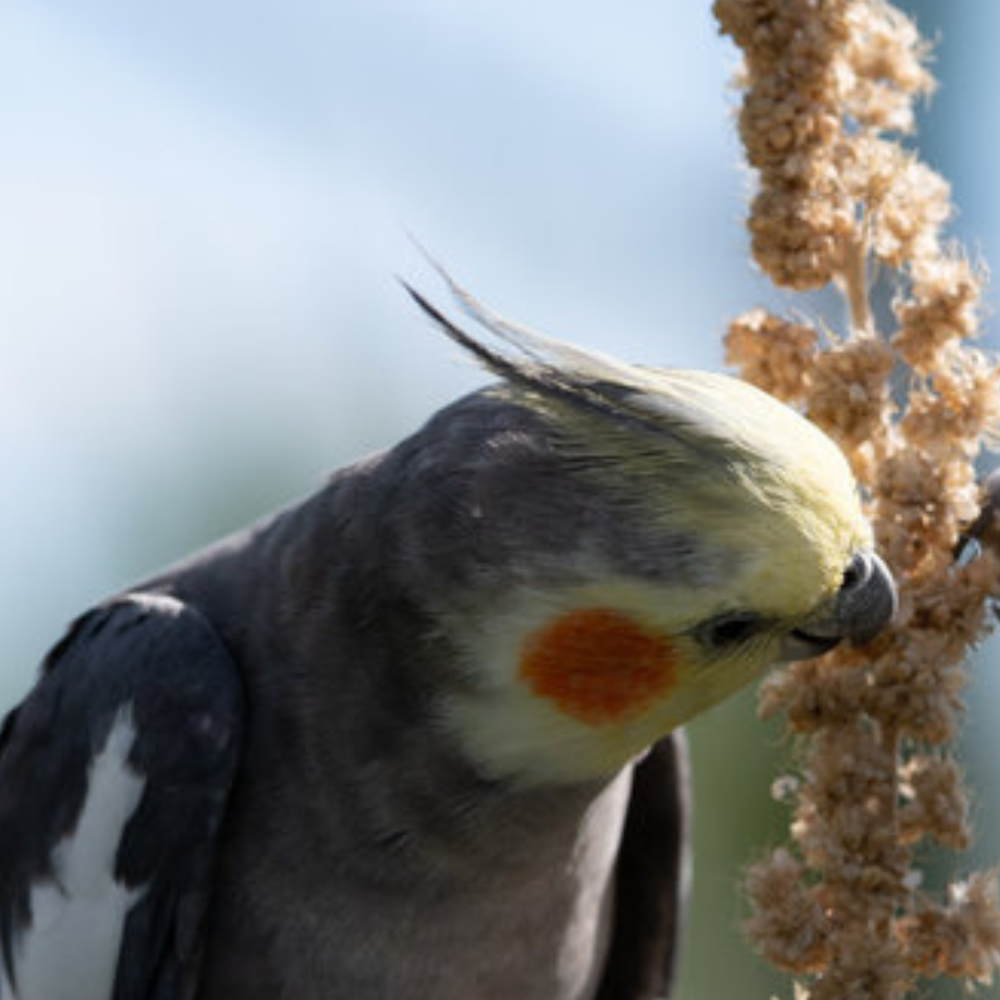
Regular Health Check-Ups
Regular visits to an avian veterinarian are important for monitoring your lutino cockatiel's health, including their diet and nutrition. An expert can provide personalized advice and catch any potential issues early.
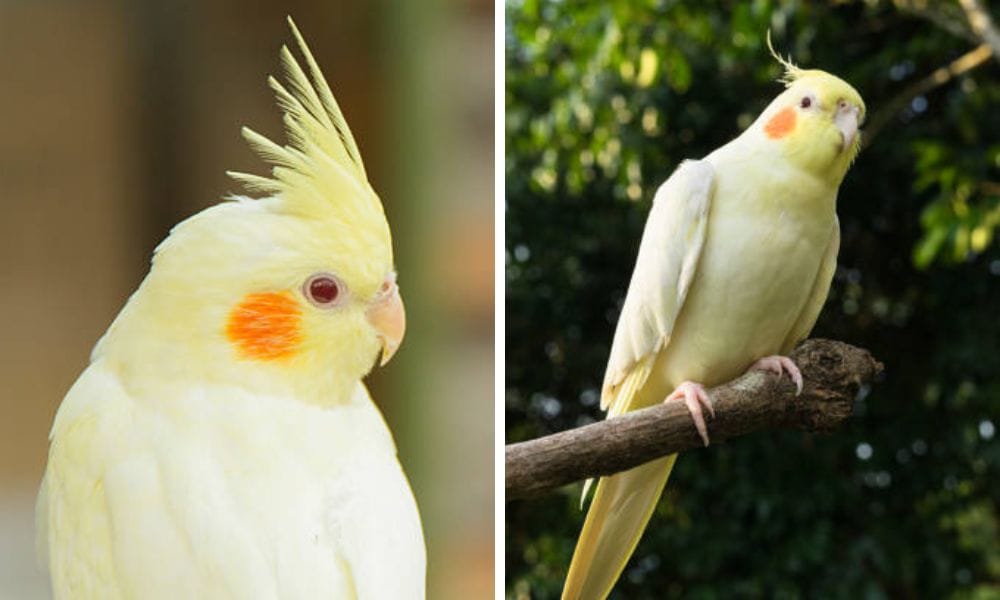
Summary
Caring for a lutino cockatiel involves providing a balanced and varied diet that includes seeds, pellets, fresh fruits, and vegetables. Monitoring their food intake and avoiding harmful foods are key to preventing health issues. With proper nutrition and care, your lutino cockatiel can enjoy a long, happy, and healthy life.
FAQ Section
Q: How often should I feed my lutino cockatiel? A: Lutino cockatiels should be fed twice a day, with their food portions controlled to prevent overeating. Fresh water should be available at all times.
Q: Can lutino cockatiels eat the same foods as other cockatiel mutations? A: Yes, lutino cockatiels have the same dietary requirements as other cockatiel color mutations. The lutino gene affects their feather pigmentation, not their digestive system.
Q: Are there any specific supplements needed for lutino cockatiels? A: Generally, a balanced diet will provide all the necessary nutrients for a lutino cockatiel. However, some may require additional supplements, especially during breeding or due to specific health issues. Always consult with an avian veterinarian before adding supplements to your bird's diet.

